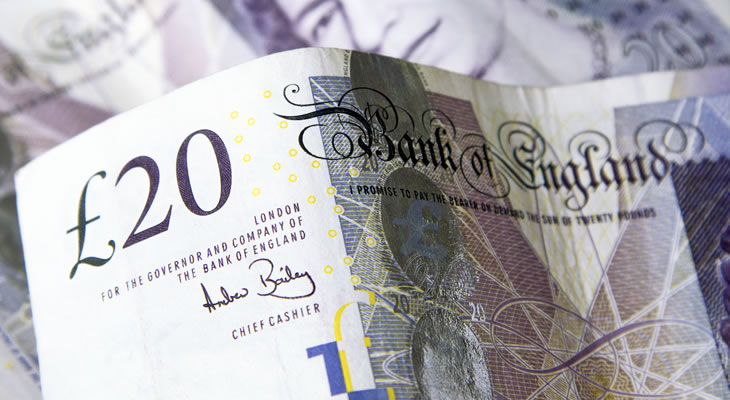Negative UK Manufacturing PMI Weighs on Pound Sterling Euro (GBP/EUR) Exchange Rate
A slight upward revision to December’s UK manufacturing PMI failed to shore up the Pound Sterling to Euro (GBP/EUR) exchange rate on Thursday morning.
While the finalised PMI bettered initial estimates it sill represented a further loss of momentum on the month, easing from 48.9 to 47.5 in the final month of 2019.
With the manufacturing sector sinking deeper into contraction territory confidence in the wider outlook of the UK economy naturally diminished, to the detriment of Pound Sterling (GBP).
As Rob Dobson, Director at IHS Markit, noted:
‘The UK manufacturing sector took a turn for the worse at the end of 2019. Output fell at the quickest pace in seven-and-a-half years as new order inflows decreased and Brexit safety stocks were reduced. With demand weak and confidence remaining subdued, input purchasing was pared back sharply and jobs cut for the ninth successive month.’
The increasing odds of a fourth quarter gross domestic product contraction saw GBP exchange rates falter, with investors still wary of the potential for the UK economy to slip into a state of recession.
Eleventh Month of Eurozone Manufacturing Slowdown Limits Euro Appeal
Even so, support for the Euro (EUR) remained generally muted thanks to the underwhelming nature of the finalised raft of Eurozone manufacturing PMIs.
As the Eurozone manufacturing sector remained in a state of decline for an eleventh consecutive month investors saw little incentive to buy into the single currency.
With the German economy increasingly dragging on overall Eurozone growth EUR exchange rates struggled to find any particular traction.
However, the mood towards the single currency could pick up on the back of December’s German consumer price index report.
If the headline inflation rate strengthens from 1.1% to 1.4% as forecast this may offer EUR exchange rates a solid boost across the board.
Even though this would still fall some way short of the European Central Bank’s (ECB) 2% target any signs of a sustainable increase in inflationary pressure would reduce the incentive for policymakers to loosen monetary policy further.
Underwhelming UK Borrowing Figures Forecast to Drag on GBP/EUR Exchange Rate
Further weakness looks likely for GBP exchange rates if UK consumer confidence and mortgage approvals figures weaken as forecast on Friday.
Evidence of increasing caution among households and lenders could cast a fresh shadow over the economic outlook, leaving the Pound biased towards the downside.
With less than a month left before the UK’s departure date from the EU any fresh evidence of weakening domestic sentiment may weigh heavily on the GBP/EUR exchange rate.
Market anxiety over Brexit looks set to pick up once again in the coming days, meanwhile, as attention increasingly turns towards the matter of the UK’s future relationship with the EU.
As the risk of a cliff-edge at the end of the truncated transition period remains this could easily drag on demand for the Pound as long as markets doubt the two sides’ ability to agree a deal.


Comments are closed.